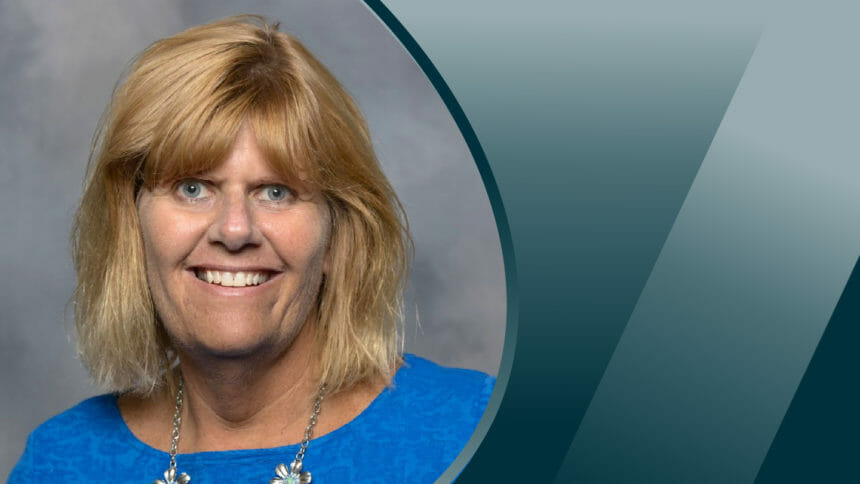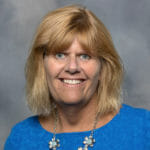
As I boarded my flight to head back to Orlando after attending a senior living related conference recently, I promised myself that I would take a break from answering emails and doing work on the plane. My initial plan was to listen to music and appreciate the quiet time that often comes along with takeoff.
As luck would have it, I found an aisle seat with no one in the middle seat. On the rare occasion that this happens these days, I find inner joy immediately that lasts the entire flight. I am grateful for that little bit of luck.
I exchanged a courtesy hello with the woman to my right, who was sitting in the window seat. As typical for my travel routine, I placed my cell phone into airplane mode, connected with the plane’s Wi-Fi, and began to watch the plane’s route while monitoring the altitude as we climbed into the friendly skies. It is during these 10 to 15 minutes of early flight time that I often reflect on my work-related adventures over the course of the past few days.
My reflection from this last conference left such an impact on me that I pivoted from my initial music-listening plan and instead chose to write. I felt compelled to get my raw thoughts on paper.
Truth be told, I think having that empty middle seat had something to do with my decision. There sometimes is no better place to find solitude in writing than when I am in the air. While I am surrounded by probably close to 180 people, I am quite happy being “alone” in the cabin.
My thoughts frequently drift toward hopeful promises of grandeur, and today, I found myself deeply reflecting on various encounters from the recent conference, particularly those concerning the care of individuals’ mothers. The conversations and discussions about care for people’s own family members is becoming more common and can be compared with an undertow in the ocean that is taking place against the existing current within the senior living industry. Concern for how we systemically care for older adults is growing, and those serving this population day to day within the community walls are worried.
Navigating the senior living landscape poses significant challenges for all involved, from owners and operators to residents, families, caregivers, administrators and the ancillary support providers who supply products and services to those communities. Although “challenging” might be the professional term we use, I’ve heard less flattering words used at conferences. It’s time for a shift in perspective. We need unity and collaboration more than ever. The words we choose matter if we want to not only survive but thrive as an industry. The tides must change.
Let me take you back to my initial thoughts around the potential for newfound hope and improved care for people living in senior living communities that I believe is possible, based on an abundance of conversations that I had during this conference with very caring and committed people. I witnessed the camaraderie firsthand, shared with many senior living community team members who traveled together to the conference. I heard feedback in some of the speaker sessions whereby individuals were willing to share their industry best practices — and share with their competitors no less — with hope that sharing best practices may alleviate some of day-to-day troubles that community staff members are facing.
I noticed that the content during speaker presentation sessions is changing. The messaging is full of encouragement to individuals to take what they learn back to their communities for further discussion. I saw session attendees nod in agreement frequently when presentations encouraged change and action, versus just words.
The feedback from session attendees is changing, too. More people are showing up. More people are speaking up. More people are acknowledging that, systemically, we have an abundance of concern related to the care of residents in our industry, and change is needed.
While I use the saying “control what you can control” to often cope with life’s hiccups, one nurse that I met during this conference shared with me some caregiver staffing-related concerns and finished my saying with “and manage those things that you cannot.” I learned from her.
My conversation with this nurse continued, and we began to talk about resident care and what good care looks like these days. She recounted a story to me about a caregiver who significantly influenced the life of a community resident by providing the resident an abundance of care and attention. This caregiver’s dedication to her resident was so much above and beyond expectations that it led to feelings of jealousy among other team members, who perceived it as “showboating.” My knee jerk reaction was, “lucky you if that one resident is your mom!”
One of my Seni teammates and I spent time exhibiting at this conference. A hotel employee who was working at the conference stopped by our exhibitor booth and shared with us that her mom was incontinent. She wanted to learn more. We offered this woman some free product samples, and her eyes lit up with hope. This woman was grateful for the samples, so much so that she offered to save us the two-minute walk to the area where appetizers and drinks were available and personally served my teammate and me.
Although her act of appreciation was kind, it was not necessary, nor was it expected. In a strange way, it was a bit “over the top,” don’t you think? So why did she offer up such a kind gesture? The answer is simple: Because she loves her mom. Her mom matters to her, and with resources, she innately understood that there is hope for a better outcome for her mom.
I also had a conversation with another person at this conference, and together “we had a moment,” so to speak. This person shared a story from several years ago about their mom being in the hospital for a few weeks before passing away. She shared with me that her mom had lived a very happy and long life overall. Her daughter was by her mom’s side during the last few weeks of her life, and it was during this time that her mom developed a bedsore. Now even though her mom’s passing was several years ago, she had tears in her eyes as she recounted the pain that her mom was in during that time. That led to me tearing up and, thankfully, we were able to share some laughter with one another that we were “having a moment.”
Once again, mom’s matter. We want the best for them.
Throughout the conference, my teammate and I were lucky to have many conversations with people who either work in senior living communities, own senior living communities or provide products and services to communities. The challenges in the industry are apparent and related to financial stability, ongoing staffing shortages, potential and actual violations related to resident care, and the list goes on.
My takeaway, however, was that the hope for a better tomorrow remains, as does the commitment from the big hearts of the people who are deep in the weeds of this industry. The hope for improved care never has been more evident, in my opinion, with the understanding that significant change is needed to achieve this goal for the industry to survive versus collapse.
The senior living industry story’s trajectory must change. Expectations must change. Priorities must change.
No longer is just a village needed to improve the quality of care for a demographic that is living with more chronic conditions than ever before, but we need everyone in “the village, the city and the town” to think about a person-centered approach to care versus a “heads and beds” mentality. Profits keep us afloat, but without people, there are no profits.
Perhaps one answer to creating positive change is to eliminate “head and beds” from our vocabulary. Perhaps operating from a thought process of “moms and dads” or “grandmas and grandpas” may be a positive catalyst to a new movement.
If I live at home and need home care, I am referred to as a client. Should I live at home and spend a few days a week in an adult day center, I am referred to as a participant. If I move to an assisted living community, I will become a resident. As my aging journey continues and should I transition from assisted living to a skilled health facility, I will become a patient.
In a world where aging is difficult enough, my wish for all is that we remain moms and dads not just in name, but in how we are cared for, too. One person matters when it’s your mom!
Deanna Vigliotta is the national sales manager for Seni premium adult incontinence products and has a 30-year background in healthcare sales and sales management. She joined Seni in early 2019 to help expand the brand presence on the US market and to educate consumers, healthcare professionals and senior living communities about the importance of choosing high-quality, fully breathable products.
The opinions expressed in each McKnight’s Senior Living marketplace column are those of the author and are not necessarily those of McKnight’s Senior Living.
Have a column idea? See our submission guidelines here.


